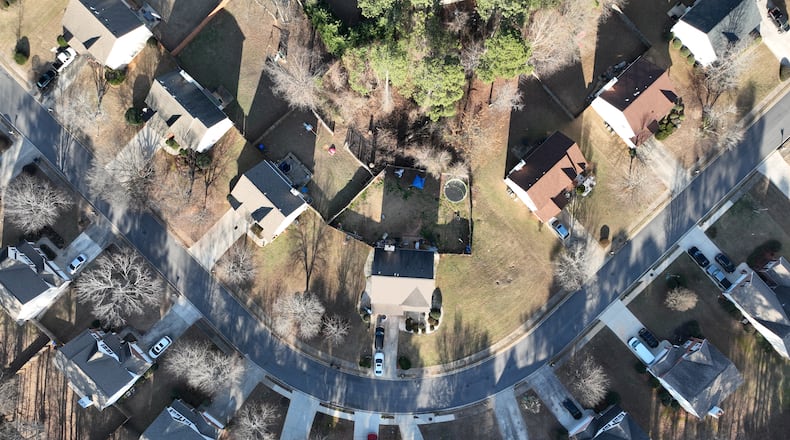Atlanta beat 19 other major U.S. cities to claim the largest share of investor-owned single-family rental properties, according to a new report by the U.S. Government Accountability Office.
That ranking also puts Atlanta ahead of all the other Sun Belt cities the federal agency reviewed, with an estimated 25% share of the single-family rental market in the city, or about 72,000 properties.
The agency’s findings on investors with more than 1,000 properties in 20 cities relied on an analysis of 2022 data from the Urban Institute, a Washington, D.C.-based think tank.
According to the report, the largest shares were concentrated in the southeast region of the U.S., with Jacksonville, FL., ranking second with a 21% share and 17,000 properties; Charlotte, North Carolina, third with a 18% share and 24,000 properties; and Tampa, Florida, fourth with a 15% share and about 23,000 properties.
The May 2024 report builds on previous findings, including The Atlanta Journal Constitution’s investigative series “American Dream for Rent.” The series looked at the outsize role Wall Street investment plays in one of the fastest growing metro areas in the country.
Drawing a line between the current state of institutional investment in rental housing and the 2007-08 financial crisis, the report notes how bulk buying of homes rose dramatically after millions of Americans’ homes were foreclosed upon, and investors bought them up at auction to transform into rental properties.
“The Sun Belt cities that initially experienced an influx of institutional investment following the financial crisis continue to have the largest amount of institutional investment,” the report states.
According to the federal agency, toward the end of 2011, no single investor owned 1,000 or more single family rental homes. By 2015, institutional investors owned between 170,000 to 300,000 homes. Overall, the report suggests investors were able to harness cash offers and technological advancements to quickly acquire and manage portfolios of properties — a parallel finding to the AJC investigation.
The agency reviewed 74 studies related to institutional investment in single-family housing, including papers, and research reports from government and nongovernmental organizations.
GAO director of financial markets and community investment Jill Naamane said the agency plans to undertake its own data analysis to gauge the impacts.
Although critics of institutional investment in single-family rentals say it contributes to soaring rents and home prices, the agency said its findings on the matter were inconclusive.
“Information on these investors’ effects on homeownership opportunities and tenants (e.g., eviction rates) was unclear because data are limited and there is no consistent definition of institutional investor,” the May 22 report states.
Nevertheless, Naamane said several studies the agency reviewed found a connection between investor ownership and rising home prices in the surrounding areas.
“In terms of rental prices, there were a couple of studies that found a connection. But then there were a couple of others that found either mixed results or results that were not conclusive,” she said in an interview.
Michael Waller, executive director of Georgia Appleseed Center for Law & Justice, a nonprofit advocating for housing equity for low-income children and families, said there are gaps in the agency’s report. He said hidden fees, retaliatory eviction filings, and dangerous conditions deserved closer examination.
“Rent prices alone don’t tell the most important part of the story, particularly for low income families,” he said.
About the Author
Keep Reading
The Latest
Featured



